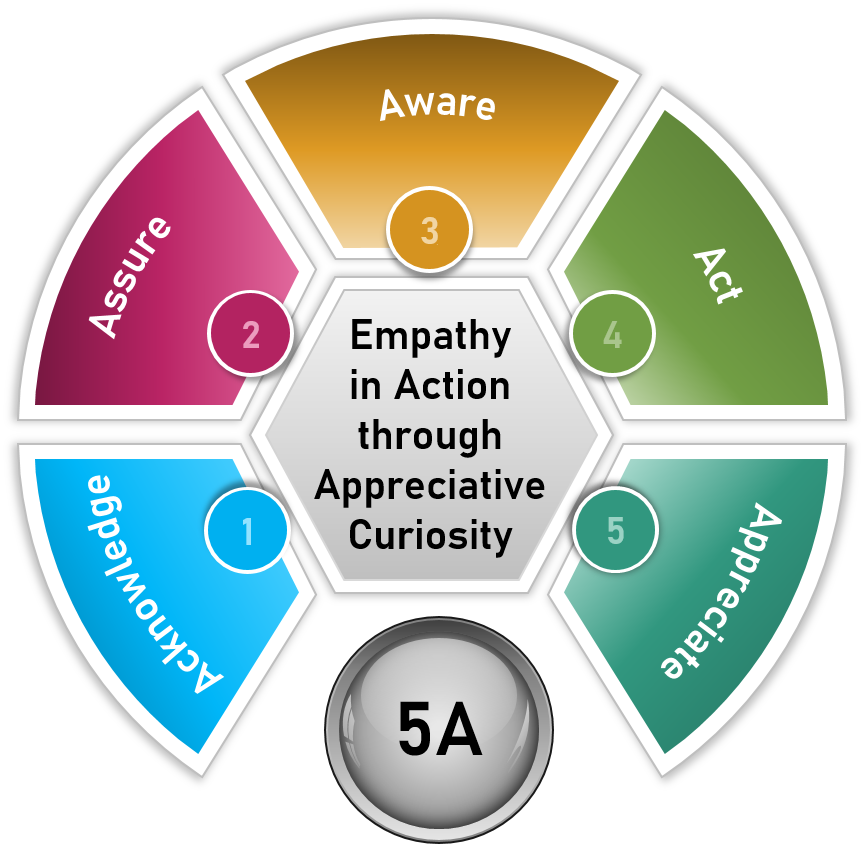
Appreciative Curiosity to Support the Mental Health Sequelae of COVID-19
- Posted by Manaan Kar Ray
- Categories COVID-19
- Date August 10, 2020
In this up coming course we outline the principles and practice of Appreciative Curiosity to address the mental health consequences of COVID-19. The immediate threat to life due to the pandemic meant that mental health was not in sharp focus to begin with, but the need had never been greater. Anxiety is rife and it applies to staff, patients and the general population. To contain the pandemic, services have needed to eliminate all non-essential face to face contact and adapt their practice rapidly to telehealth. We describe a model called Appreciative Curiosity which is ideal for proactive telehealth contact to support people to stay safe and keep well through the pandemic. It has 5 components:
- acknowledgement of the anxiety as one that is shared across the board,
- assurance of how we will get through this together,
- awareness of what helps, hinders and harms,
- actions that are values guided and
- appreciation of one’s assets and aspirations.
The practice-based model supports people to discriminate anticipatory anxiety from anxiety that can be addressed through actions in the here and now. The foundation of the model is the shared experience of the pandemic and an attempt to connect with a fellow human being without a power differential and make meaning together of tough times.
We will then translate the 5 components of Appreciative Curiosity into a simpler semi-structured guided conversation called LIFE. Mental health professionals can use it as a brief telehealth intervention but is aimed for primary health care and community settings. There are four aspects to the LIFE interaction:
- Listen with CARE,
- Identify emotional PAIN,
- Find HELP and
- Establish HOPE.
There is an emerging new normal and a lot of uncertainty yet to come. LIFE focuses on those simple pragmatic solutions to enhance wellness while adapting to an alternative future with its novel challenges.
Finally we will prompt students to put the proposed changes to the 2030 future-proof challenge. There is an openness to change due to the crisis and it has forced services to innovate rapidly. We believe this may help bring time forward and allow us to anticipate and design future care systems better and deliver tomorrow’s care today. We will discuss key shifts in mindset from physical to virtual, from reactive to proactive, from deficits to assets and from top to tap, shifts that will be critical in meeting the 2030 future proof challenge for mental health services.
Amidst this crisis, rolling out a new model of care would be challenging, but the burning platform it provides, makes it possible to deliver tomorrow’s care today. The urgency could cut through entrenched bureaucracy and established culture that might otherwise have taken a decade to implement. Organisations would need to be nimble on their feet and ambidextrous in their approach. They need to cater for the present and meet the needs of the current patients, while planning for contingencies to deal with the pandemic and getting ready for the future. Many might become focused on just surviving the crisis and miss the opportunity to flourish once it’s over. Use the crisis to bring time forward and deliver tomorrow’s care today.
We have had significant success in our conversations both when supporting fellow colleagues as well as patients. We have been asking people what they would do when we all come out the other end. We have had some remarkable answers, remarkable in their simplicity. One person said they would want to read a book in the park without the police harassing them, another said I want to go and see my mother in the care home, another said I want to feel safe when I touch something, particularly trolleys at the supermarket. Suddenly we are appreciating the things that matter to us that we have always taken for granted. A patient who is currently manic and was about to hug me, stopped herself and said when this is over, all I want to do is give my friends the biggest hug possible. As I thanked her for showing restraint and for being cognizant of protecting both me and her, she welled up and said “just stay safe doctor.” The moment captured for me “what matters to you, matters to us”. The pandemic has indeed levelled the playing field and we are all human beings reaching out with humane connections. We are on a shared journey of discovery, making meaning together of a time that will soon be in our memory and not on the news, we hope…
